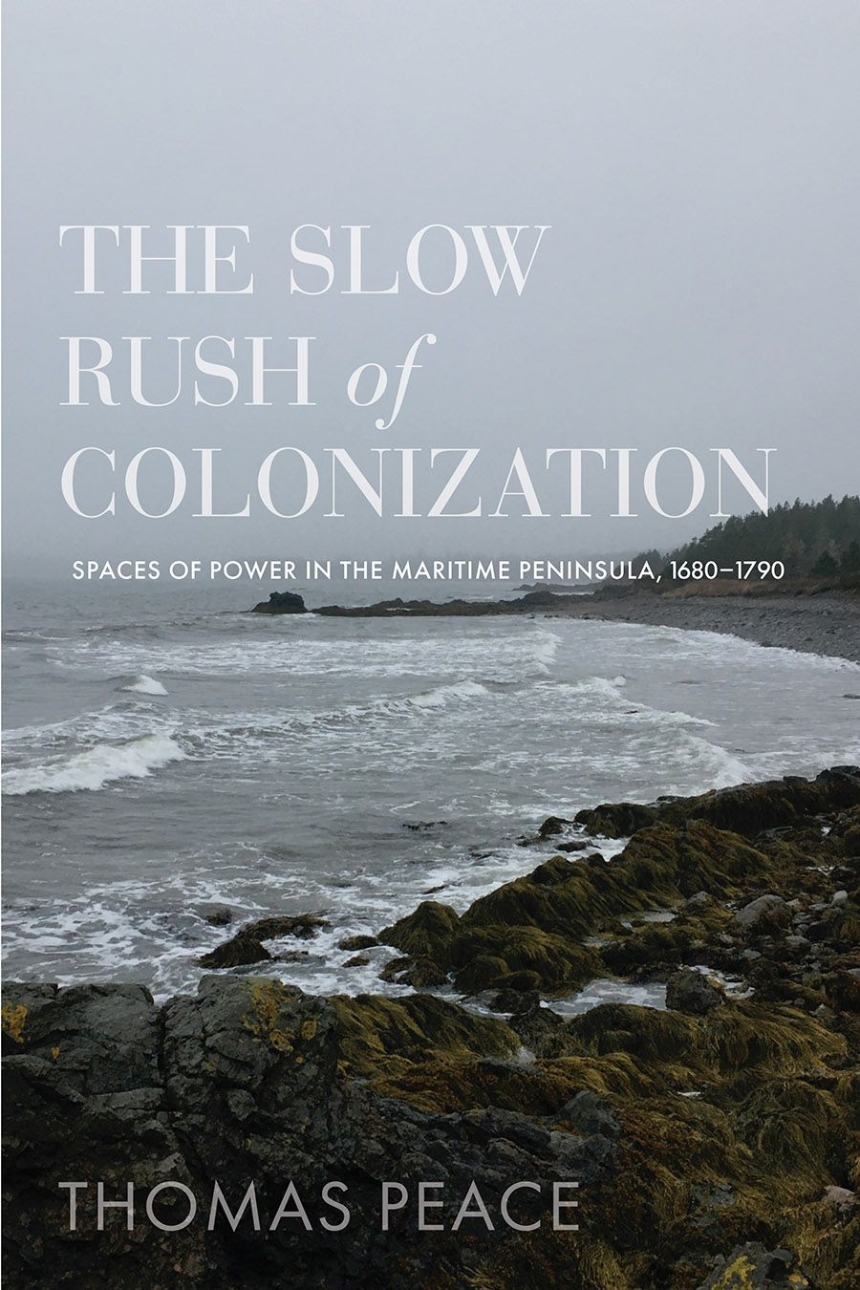University of British Columbia Press
The Slow Rush of Colonization
Spaces of Power in the Maritime Peninsula, 1680–1790
9780774868358
9780774868341
Distributed for University of British Columbia Press
The Slow Rush of Colonization
Spaces of Power in the Maritime Peninsula, 1680–1790
An overlooked history of the Maritime Peninsula from the perspective of its Indigenous communities.
In 1760, after Montcalm’s defeat at the Plains of Abraham, the French Empire was definitively expelled from the Saint Lawrence Valley. This history is well known. Less well known is that this decisive victory had its roots almost a hundred years earlier when settler colonial systems of power first took root on the peripheries of the Maritime Peninsula (the places known today as Quebec, Maritime Canada, and New England).
Drawing on the concept of spaces of power, historian Thomas Peace demonstrates that despite imperial changes of power and settler colonial incursions on their Lands, local Mi’kmaw, Wabanaki, Peskotomuhkati, Wolastoqiyik, and Wendat nations continued to experience the contested Peninsula as a cohesive whole, rather than one defined by subsequent colonial borders. This engaging history shows how overlapping concepts of space and power—shaped deeply by Indigenous agency and diplomacy—defined relationships in the eighteenth-century Maritime Peninsula and how, following the Seven Years’ War, this history was brushed aside as settlers flooded into the Peninsula, laying the groundwork from which Canada and the United States would develop.
In 1760, after Montcalm’s defeat at the Plains of Abraham, the French Empire was definitively expelled from the Saint Lawrence Valley. This history is well known. Less well known is that this decisive victory had its roots almost a hundred years earlier when settler colonial systems of power first took root on the peripheries of the Maritime Peninsula (the places known today as Quebec, Maritime Canada, and New England).
Drawing on the concept of spaces of power, historian Thomas Peace demonstrates that despite imperial changes of power and settler colonial incursions on their Lands, local Mi’kmaw, Wabanaki, Peskotomuhkati, Wolastoqiyik, and Wendat nations continued to experience the contested Peninsula as a cohesive whole, rather than one defined by subsequent colonial borders. This engaging history shows how overlapping concepts of space and power—shaped deeply by Indigenous agency and diplomacy—defined relationships in the eighteenth-century Maritime Peninsula and how, following the Seven Years’ War, this history was brushed aside as settlers flooded into the Peninsula, laying the groundwork from which Canada and the United States would develop.

